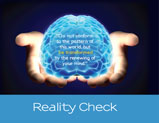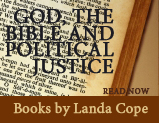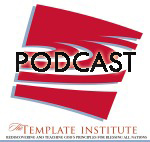Gott, die Bibel und politische Justiz: Kapitel 7
Part Two: Moses und das Gesetz Prescriptive
Kapitel 7
Das Template of Laws
Nowhere does the Law weave the values of the Kingdom more delicately and beautifully than when applied to public justice. It is so intricate that it is difficult to know which value thread to begin with in unweaving it. There are innumerable ways to look at and analyze what God is giving us in these passages. For our purposes in this volume on government and civil law I am using a matrix of three categories of crime: verlieren des Lebens, Körperverletzung und des Eigentums und vier Kategorien von Folge zu verlieren: Todesstrafe, lebenslange Haftstrafe, restaurative und Strafmaßnahmen. Mit diesen Kategorien können wir überhaupt aussehen, dass die normative Gesetz als Verbrechen bestimmt.
Ich stelle mir das Studium der Heiligen Schrift als geistig entzauberte Themen eines verzierten Wandteppich, um die Teile, aus denen das Ganze zu verstehen. Die Fäden nicht von selbst stehen; only together do they produce the picture. But the threads are the foundational parts of the whole and lay out the grid work that makes the tapestry possible. Wie Reverse Engineering von flachen Kasten Möbel, nehmen wir die ganze Schrift auseinander und herauszufinden, die Elemente Gott betont, um es zu verstehen und machen es einfacher, sie wieder zusammenzusetzen zurück in unser Leben.
In Deuteronomium Kapitel eins, God initiates a revolutionary idea to curb man’s great appetite for violence and injustice. God makes the human race responsible for governing themselves. They will choose their leaders. They will choose the laws and they will choose consequences for breaking those laws. God will give Israel His thoughts on these subjects but the authority will be theirs to maintain or change their direction. Consensus, Vertreter, Bottom-up-politische Macht ist geboren.
Denken Sie daran, wie wir durch Genesis ging, die Folgen der Sünde, Trennung von Gott, sind Tod ... immer. We all die physically because sin came into the world. As God continues in Genesis He hammers home the fruit of sin is death. We begin with brother killing brother and continue until the entire human race is so violent, that human life is endangered entirely. The flood and rebooting of human existence through Noah are God’s just and merciful option. But again man’s decent into violence in Abraham’s family is so rapid that in just three generations they have moved to near fratricide of Joseph and genocide of the Shecemites. A 435-year generational sentence is imposed on Israel as a nation in order to create an understanding of the value of human life.
Now God liberates and gives Israel the Law. The prescriptive parts of the Law are very clear. In essence God is saying, wenn Sie wüssten, was ich weiß,, Sie würde "dieses Übel zu reinigen" aus Ihrer Gesellschaft, denn diese sind genau die Dinge, die zunehmende Gewalt und Verlust des Lebens führen wird; Sex, Missbrauch von Macht und Gier.
Mit anderen Worten:, im Gesetz, Gott sagt uns deutlich, wie zu schaffen sichere, life sustaining communities and making us responsible to do it. The burden of justice is now on our shoulders. We are free to change the laws God has given and we are free to evaluate the consequences, the fruit of our choices. Are we stopping violent deaths of our fellow citizens or is it increasing? Is our mercy succeeding where God’s has failed us? Wenn nicht, muss etwas falsch sein mit unserer Wahl.
Civil Law vs. Sittengesetz
Um die Gesetze des Moses und der Geschichte Israels in unsere aktuelle Ereignisse zu interpretieren, müssen wir verstehen den Unterschied zwischen zwei Gott gegeben Behörden, die Autorität des "civil law" und der "moralische Gesetz".
All "Gesetz" ist in dem Sinne, dass sie sagt, moralische, “this is right and this is wrong.” In setting a standard of “acceptable behavior” we must make judgments of what is “good or bad.” But not all “morality” can be made a matter of civil “law.” By giving us responsibility to decide God makes us look at the implications of our choices by the impact on the society we live and raise our children in. Zivilrecht, Vertretung des Volkes, will never be more moral than the majority of the people it represents. Aber, a more moral people will seek a higher level of civil law. There in lies the tension between the work of the Pastor and the work of the President.
Both civil and moral laws are given authority from God. But they are two different kinds of authority with two different functions. One must have the will of the people behind it in order to have the power to govern. The other must have the will of God behind it to have authority and the blessing of God. One reveals the standards of the people and the other reveals the standards of God. One must seek the support of the people or to change the thinking of the people in order to have authority. The other must ignore the thinking of the people and represent God alone in order to have authority. They are divinely disagreeable in the purposes of God. And we must have both to keep the Kingdom tension of justice in human society. Civil law must be continually committed to keeping the rights of both safeguarded. Dies ist Dilemma und göttliche Spannung.
Die Vorlage
The Law seems like a maze in part because of its circular story telling style. We see themes rotating and weaving throughout but they are difficult to grab hold of. Weil ich bin dyslectic ist es wichtig für mich Informationen zu bestellen, es zu behalten. So verwendete ich Farbe wieder zu mir helfen, in dieser Studie des Gesetzes, wie ich in das Studium der Domains tat im einleitenden Volume. I divided out the prescriptive parts of the Laws of Moses. Those parts of the Law that tell us to “do this but do not do this,"Wie die 10 Gebote. Diese "normative" Abschnitte in Exodus gefunden, Levitikus, Numeri und Deuteronomium. Dann beginnend mit Mose, weil sie von jüdischen und christlichen Gelehrten gilt als der "Kern Buch sein,"Ich jedes Thema in der präskriptiven Gesetz eine Farbe zugewiesen, wenn es in meiner Lektüre und von da an verwendet werden, die gleiche Farbe erschien jedes Mal, dass Thema wieder aufgetaucht. Sobald ich Deuteronomium benutzt hatte, um festzulegen, das Muster, das ich damals in der Lage zu sehen, was Gott oder betont aufgenommen zu diesen Themen in den anderen drei Bücher des Gesetzes.
Fünf Werte
Zu meiner Überraschung, Ich fand, dass die gesamte normative Gesetz auf fünf Grundwerte, die wiederholt und werden in unterschiedlichen Umständen und in verschiedenen Behörden unterstützt baut. Hier sind die fünf Werte:
1. Life is sacred.
2. The material world is real, gut und wichtig für das ganze Leben.
3. Words have power and we are accountable for them.
4. Everything needs and is redeemable.
5. Any thinking that takes us away from God’s truths and values will begin to curse (nicht segnen) uns. (Götzendienst)
Natürlich jeder dieser Werte unterstützt die erste: "Das Leben ist heilig." Und so alle von ihnen konnte festgestellt werden, wie "Das Leben ist heilig werden, also ... "
Fünf Annahmen
In Kapitel fünf legten wir uns fünf Annahmen, dass das Reich Gottes baut auf. Das sind die Realitäten Schrift voraus:
1. Gott ist und wer er sagt, er ist.
2. Gott ist der Schöpfer des materiellen Universums, sichtbar und unsichtbar, und es ist gut.
3. Menschlichen Individuen, männlichen und weiblichen, sind in dem Bild Gottes und Seine zentrale Aufgabe für die ganze Schöpfung geschaffen.
4. Alles, was Gott geschaffen hat, wird durch den Sündenfall des Menschen und der Sünde beschädigt.
5. Alles, was beschädigt ist einlösbar durch das Blut Christi.
Ich denke, die meisten können die Ähnlichkeiten zwischen den fünf Werten des Gesetzes und den fünf Annahmen, dass alle Schrift auf gebaut sehen.
Organe der Behörde
In Kapitel vier sahen wir uns an vier Institutionen der Autorität von Gott geschaffen:
1. Einzelne
2. Familie
3. Regierung
4. Kirche[1]
Der souveräne Individuum, created in the image of God is the foundational building block of the Kingdom. The sovereign family of husband, Frau und Kinder, is crucial to the development of healthy and mature individuals. The sovereign government, ermächtigt durch das Volk regiert ist verantwortlich für die Definition und Durchsetzung von Gottes beauftragten Behörde, rights and responsibilities. And finally the sovereign Church is responsible to rightly represent God and His standards.
Jede dieser "Institutionen" ist eine Art von Autorität gegeben, Gerichtsstand, Grenzen, Rechte, freedoms and responsibilities. These lay the foundation for and the value base of civil law. These values do not perfect human beings or societies but, auf das Niveau sie niedergelassen sind, und verstärkt, they will create and sustain a more blessed society. These values and the institutions when applied reveal God to the human community. They work with the Cross to reveal Christ the King but they do not substitute for forgiveness and salvation through Jesus. They reveal the Kingdom that is coming but they cannot perfect that Kingdom on earth. Established and used properly these values produce a higher quality of life in all areas of life but they will not finally perfect man or creation.
Wir fangen an, die Grundbausteine des Reiches Gottes und biblische Gedanken zu identifizieren. Sie überschneiden sich, weben und wiederholen sich immer und immer wieder in der Heiligen Schrift. Wir müssen noch hinzufügen, die Themen der Propheten und des Neuen Testaments, but the grid is taking shape. We have five assumptions on which God builds all His thinking. Five values that are essential to uphold if these assumptions are true and four institutional authorities that God gives us in order to preserve and perpetuate these truths and values for the purpose of blessing our lives and our communities.
Tension
Diese biblische Realitäten Einrichtung eines "Spannung" der Freiheit, Rechte und Pflichten, die beibehalten werden, um zu "richtigen Reihenfolge" oder "Gerechtigkeit" zu erhalten und zu bauen gesunden Personen müssen, families and communities. They cannot be “balanced.” They must be mutually maintained.
Picture a tight rope. In order to be traversed it must be rigid. If there is any give at all the consequences can be catastrophic for the walker. This is far more consequential than a set of scales that are just a few grams off. The acrobatic artist cannot survive a slack rope. He can only perform when there is perfect tension on the rope.
In political justice if we error in one direction or the other we distort God’s order in His Kingdom. God has made the individual free and sovereign. Aber, Da dies von jedem einzelnen wahr, there are limits to freedom of any single individual. In order for every individual to be free there have to be limits to all of our freedoms. Who has the right and responsibility to create and sustain those boundaries? God has created the family as the authority for and over children. The authority of parents is loving their children. If they are trying to murder their children they are in violation of the sacredness and rights of the individual life. I have the freedom to believe what I like. Do I have the freedom to practice that freedom anywhere anytime any place? If I believe in human sacrifice for my blessing do I have a right to do it? Or is this an abuse of the sacrifice’s rights? Do we have rights as communities? How do we secure minorities rights, die Rechte von Eltern und Kindern, und die Freiheit des Glaubens, während nicht zu zerstören, die Rechte der Gemeinde?
In jeder Rechtsfrage wir diese Fragen:
1. To whom has God given what rights and responsibilities?
2. What are the limits of those rights?
3. How are violations of those rights to be dealt with?
Every system of governance has answers to these questions or is working on them. But are they Biblical answers? We can know what God says about each question and we can know, zu einem bestimmten Zeitpunkt, wo unsere Nationen Gesetze und Governance-System gesegnet sind oder in Gefahr, this is the Biblical Template. But we must be willing to exchange the thinking of the world even when it has been called “Christian” and replace it with God’s thinking, auch wenn dass heißt "weltlich."
Arbeiten die Vorlage
Wenn wir fragen, der Bibel der Frage, "Was macht mein Nachbar liebevoll aussehen?"Wir hätten die Zehn Gebote anschauen. Wenn wir fragen,, "Warum sind diese Zehn Gebote wichtig ist und wie bewerbe ich mich ihnen?"Schauen wir uns das Ganze des Gesetzes für die Details. Wenn wir fragen,, "Was würde zu einer Gesellschaft passieren, wenn wir oder angewendet entfernte sich von diesen Werten?"Wir betrachten die Propheten. Und wenn wir fragen,, "Wie könnte eine Gemeinschaft beginnen, sich von Gottes Denken?"Betrachtet man die Geschichte Israels in dem Gesetz und der Rest des Alten Testaments.
Für unsere Zwecke in diesem Buch, betrachten wir die normative und historische, soweit sie auf zivile Recht und Gerechtigkeit beziehen, versuchen zu ziehen, was wird betont. Aber für die Entwicklung unseres Denkens müssen wir sehen sie als integriert und gewebt. So, in Wirklichkeit, wir "sezieren", um analysieren und setzte sie wieder zusammen, um verstehen und anwenden.
Beispielsweise, die normative Gesetz sagt, dass Ehebruch illegal und mit dem Tode bestraft wird. Aber historisch ist dies nicht, wenn David beging Ehebruch mit Bathseba. Warum? Haben sie einfach nicht die Gesetze anwenden? Oder, war es mehr zum "Gesetz" als nur die Verbote? War das Recht des Volkes, zu ratifizieren und ändern zivilrechtlichen Teil dessen, was die Werte von "dem Gesetz" gesichert? Als die Pharisäer Jesus bringen eine Frau beim Ehebruch ertappt und ihn dazu ermutigen, Stein ihr nach dem Gesetz des Mose. Jesus ermutigt sie zu Stein, wenn sie ihre Gerechtigkeit wird ihnen erlauben, als Richter zu stehen. Unter dem römischen Recht Ehebruch war nicht illegal, und wenn sie sie gesteinigt hatten sie gefunden wurden des Mordes schuldig. Vielleicht war ihr Plan für Jesus. He then dismisses the women with the exhortation to “sin no more.” Adultery is still immoral.
[1] It is very tempting to make this list five as well by adding “God” from who all authority and power comes. The author is resisting the temptation to numerical perfection.







